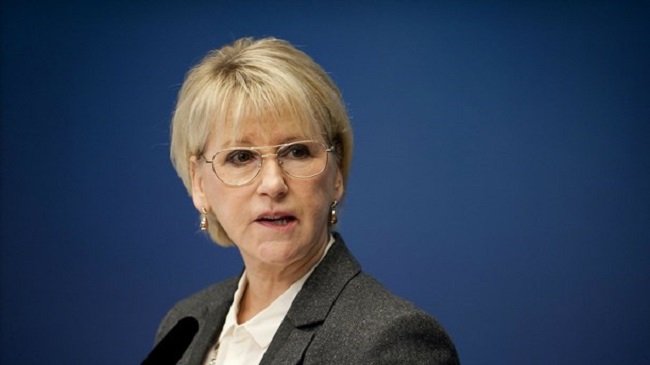Swedish minister speaks on UN-AU partnership

Swedish Foreign Minister Margot Wallström spoke at a high-level breakfast on the centrality of UN-AU in New York on May 10
Excellencies, ladies and gentlemen, friends,
I am honoured to be here today and proud to co-host this event, on behalf of Sweden, together with Egypt and the International Peace Institute.
The GA debate we will engage in today and tomorrow is timely.
Unprecedented numbers of people are fleeing violent conflict. The world is rife with massive human rights violations and emergencies. Violent extremism is threatening the social fabric of states and societies. Climate change, including associated natural disasters and shortages of farmland and water, poses a real threat to many states.
But efforts to address these issues are under way. Over the past year, we have come together – in Sendai, Addis Ababa, Paris and here in New York – to reach agreements at the highest level on how to tackle these challenges.
Reviews of peacekeeping, peacebuilding, and the role of women in peace and security have been undertaken successfully. We now need to capitalise on the momentum generated by the commitments that we have all made.
Over the years, the United Nations has shown that it is uniquely placed to support efforts to prevent conflict and sustain peace. But we must also acknowledge that in an ever-changing environment, the UN cannot perform this role alone.
Efforts to tackle challenges to peace and security will not be successful without the context-specific knowledge, understanding and ability of regional and sub-regional organisations.
For some time now, we have professed our willingness to move forward on this understanding. We meet here today to discuss how we move from rhetoric to action.
I believe that the new commitment for peace, which will be discussed at the General Assembly today and tomorrow, also needs to contain a solid commitment for African regional and sub-regional organisations, particularly the African Union.
Let me make three points in this regard.
Firstly, an enhanced AU-UN strategic partnership should be mutually reinforcing. Both organisations would benefit from a closer and more predictable partnership.
Secondly, the partnership must encompass conflict prevention and peacebuilding – in keeping with the recent resolutions on the UN Peacebuilding Architecture. They signal a bold and much-needed change in mindset by establishing a new concept of ‘sustaining peace’.
Indeed, convergence is evident in the African Peace and Security Architecture and the priorities spelled out in its Roadmap 2016–2020: conflict prevention, conflict management, and post-conflict reconstruction and peacebuilding.
And thirdly, the partnership should address the need for predictable and sustainable funding arrangements for peace operations conducted by regional organisations under UN mandates. Sweden is deeply committed to making progress on this.
Excellencies, colleagues,
I am honoured by the presence of so many distinguished guests. It will make for a fruitful discussion and demonstrates a political commitment to taking the next steps.
We are not often presented with opportunities to collectively create lasting change in the international response to challenges to peace and security. But we now have one. I look forward to our discussion and to taking our work forward – in partnership.
Thank you.

